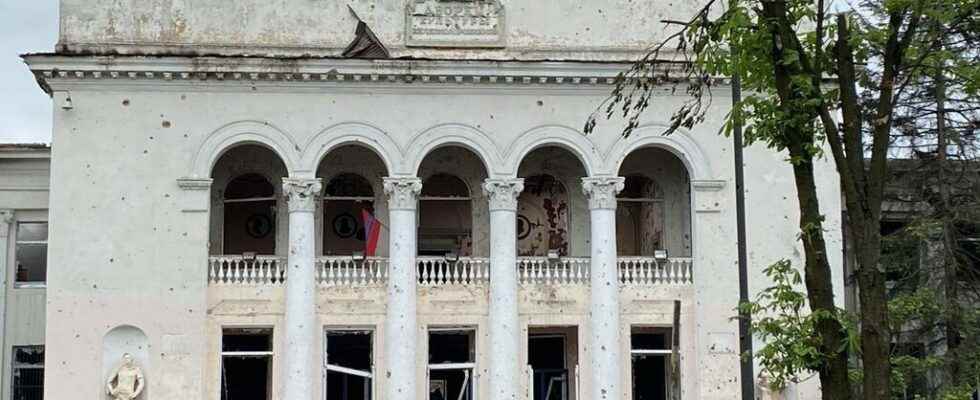RFI in the Donbass, pro-Russian side. Accompanied by the separatist forces with the press, our special correspondent met with the press historians from Russian state museums in Popasna, in the republic of Lugansk.
With our special correspondent in Popasna, Anissa El Jabri
Helmet and bulletproof vest, Nikita Anikin surveys the houses and ruined buildings of Popasna. Deputy Director of Development at the State Museum of Contemporary History, he visited all areas conquered by Russian and pro-Russian forces.
Objective: to prepare with his colleagues a future major dedicated exhibition, he says, “ to future generations “. Among the objects he collects, history books in schools.
They are all more or less anti-Russian. For example, the tragedy of the great famine in the Soviet Union, which the Ukrainians call “the holodomor”, is seen as a special policy carried out by the Russian Bolsheviks, as an act of genocide of the Ukrainian people alone, with the idea that Russia and the Soviet Union have always tried to kill Ukrainians. While the true historical version is that it was a great tragedy for the entire population of the Soviet Union.
An exhibition has already been held at the Museum of Contemporary History in the Russian capital this spring, titled “ NATO, chronicle of cruelty “. Main message: the Atlantic Alliance is an aggressor.
The teaching of history, and of what is judged as ” its good version has long been a key concern for power in Russia. Since the summer of 2020, for example, it has been enshrined in the Constitution that the country ” honors the memory of defenders of the fatherland ” and ” protect historical truth “.
►Read again: In Popasna, in the Donbass, the population is trying to survive
